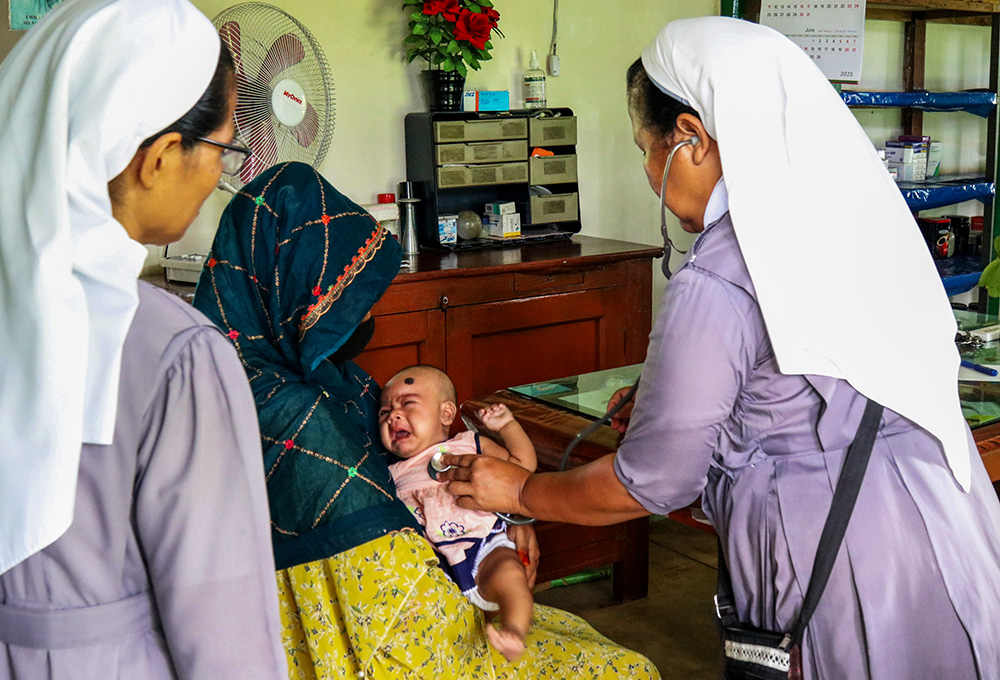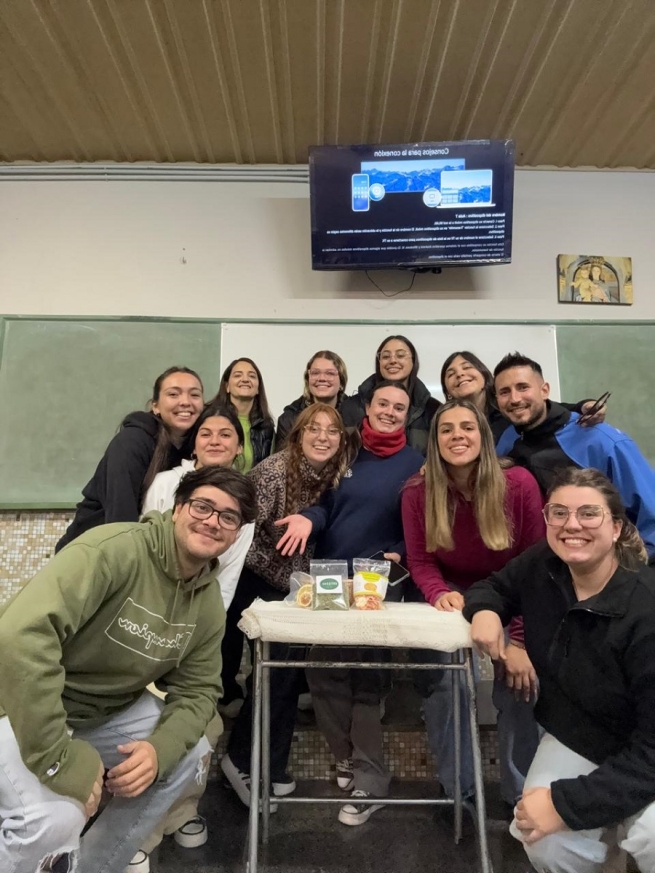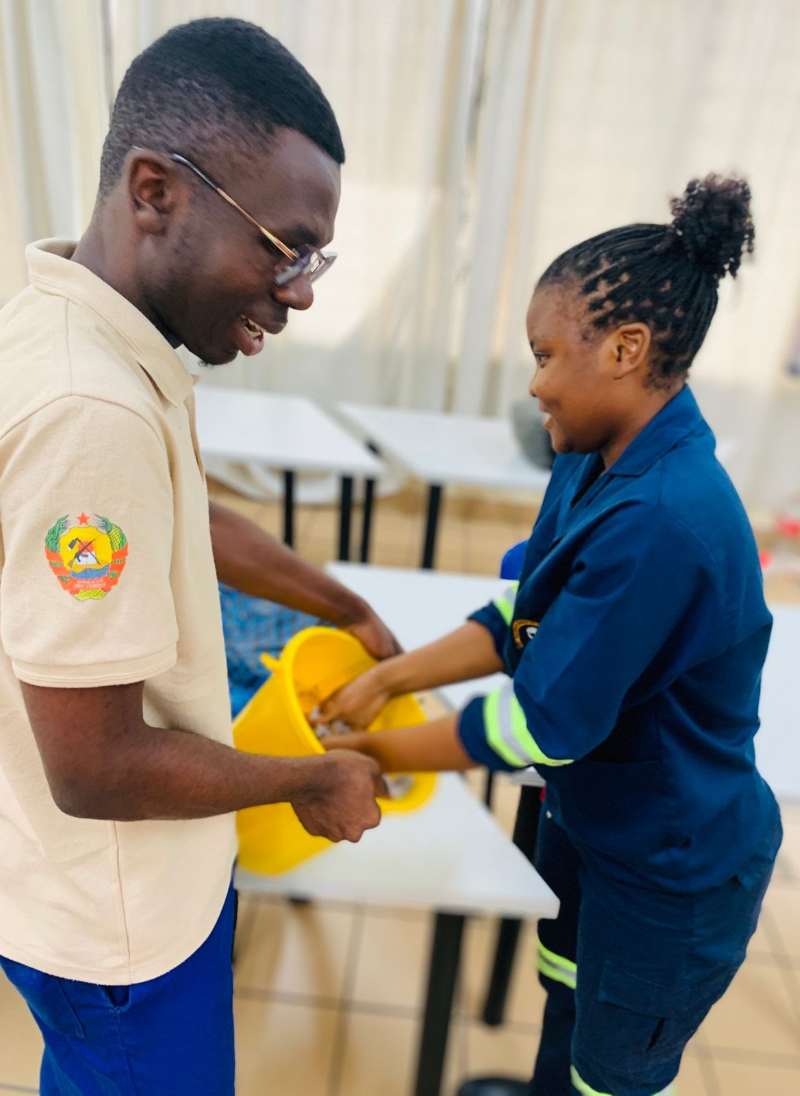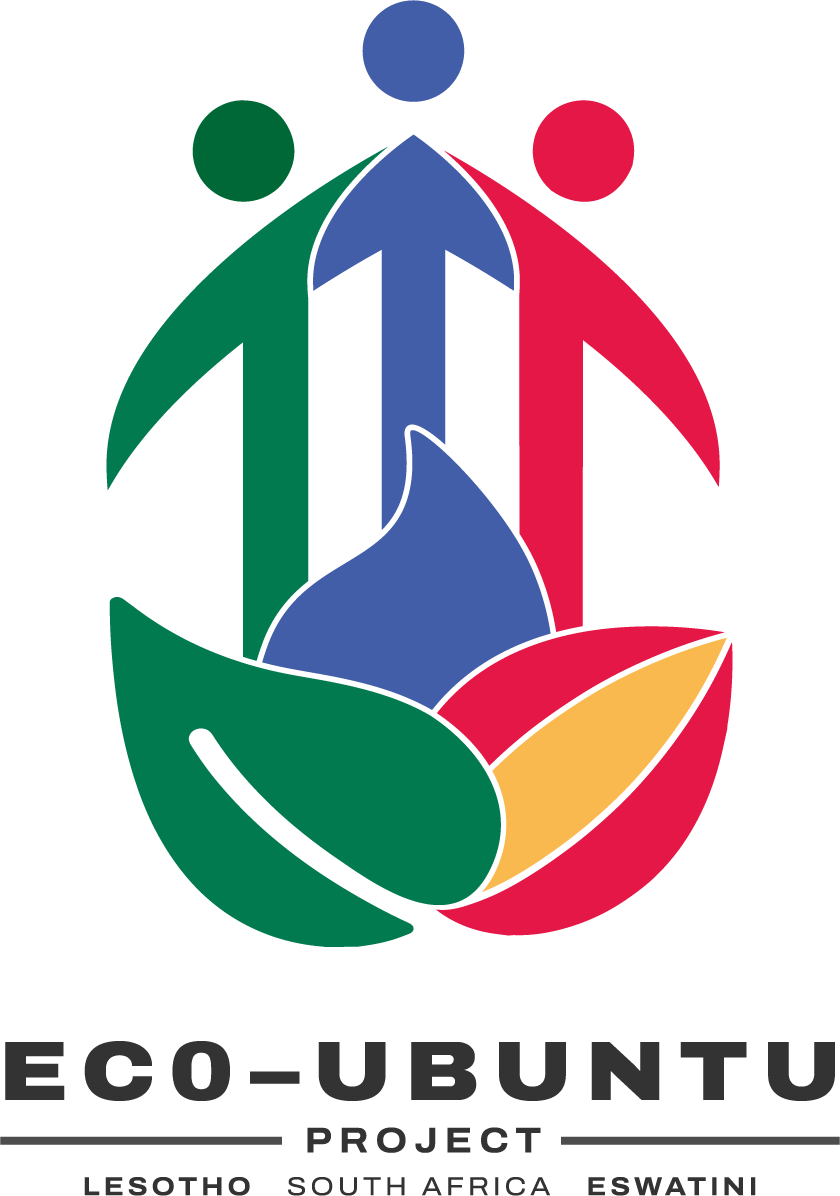BANGLADESH: Salesian sisters provide medical support to help reduce maternal and infant mortality

Sister Baptista Rema has provided health care for more than 25 years
(MissionNewswire) The Salesian Sisters of Mary Immaculate operate six clinics in the remote areas of the dioceses of Mymensingh, Sylhet and Chittagong, Bangladesh, to help reduce maternal and infant mortality, according to an article in Global Sisters Report. The sisters have been working to combat these issues for decades in dispensaries, clinics and hospitals.
“We perform an average of three healthy deliveries every month, and we also have an average of at least 10 pregnant women come every month for advice and regular checkups,” said Salesian Sister Baptista Rema in the article. She has spent more than 25 years providing health care to Indigenous communities in rural areas. Most of her patients are poor, lack basic education and must travel long distances to seek her care.
In the article, Sr. Rema noted, “When I graduated from nursing in 1999 and started working at the Mary Immaculate Dispensary in the Diocese of Sylhet, the infant mortality rate in that area was over 10%, but now it is one or two in 1,000.”
Most of the women she provides medical care for are poor and have no choice but to continue working, risking their pregnancies. Others have lost their pregnancies due to abusive husbands. The challenges for these women in rural areas are severe. But still, the Salesian sisters continue to be a source of support.
One of the women helped by Sr. Rema is Mary Hembrom, who gave birth to her second child after eight years of marriage. She told Global Sisters Report, “I went to the sister for health checkups twice a month, and she delivered my child naturally.” Hembrom is an Indigenous mother of two whose husband is a day laborer and supporting the family on a modest income.
More than 100,000 children in Bangladesh died before their fifth birthday in 2023, and almost two-thirds of these deaths occurred within the first 28 days of life, according to UNICEF. Despite these statistics, government health authorities recognize the sisters’ contributions toward reducing infant mortality, according to the article.
Rabindranath Pramanik, who works for the Bangladesh government’s health department, said in the article, “Most of the work that the government needs to do is being done by their missionary organizations, and the sisters provide services in remote areas as well.” Pramanik also expressed his gratitude to the sisters for their work.
Sr. Rema is advocating for widespread public health campaigns to reduce child mortality in rural areas. However, government health services are not available in remote areas, private health services operate strictly for profit, and the Indigenous communities remain largely forgotten.
In the article, she concluded, “I will call on donor organizations to come forward to support these rural communities so that they receive proper medical services.”
Bangladesh suffers from poor infrastructure, political instability, corruption and insufficient power supplies. Close to 80% of the country’s population lives in rural areas. Many people who live in remote and rural areas lack access to education, health care and adequate roads. An estimated 36% of the rural population lives below the poverty line and owns no land or assets, experiences persistent food insecurity, and often has very little education.
###
Sources:
Photo courtesy of Global Sisters Report (GSR photo/Stephan Uttom Rozario)
Global Sisters Report – Bangladeshi sisters work to reduce infant mortality in Indigenous communities
UNICEF – Bangladesh
World Bank – Bangladesh Poverty




